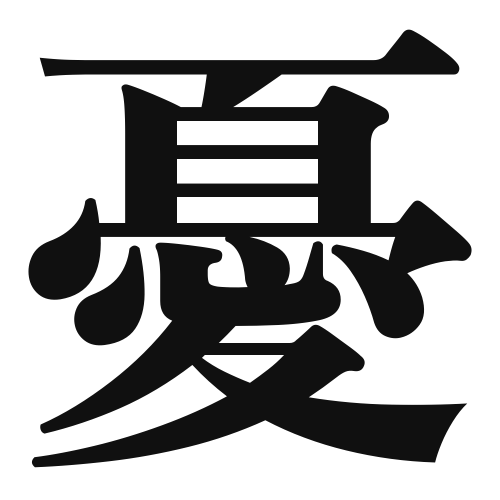1. Overview of Meaning
The kanji “憂” (yuu) means “anxiety” or “worry.” It conveys a sense of concern or unease about something, often related to future events or situations.
2. Formation and Radical
Formation of the Kanji: The kanji “憂” is a compound character (会意文字) that combines the elements of “心” (heart) and “尤” (especially). This combination suggests a deep emotional concern or worry.
Radical: The radical of “憂” is “心” (kokoro), which means “heart” or “mind.” This radical is commonly associated with emotions and feelings in various kanji.
3. Examples of Usage
Common Words and Phrases:
- 憂鬱 (yuuutsu) – depression
- 憂慮 (yuuryo) – anxiety or concern
Example Sentences in Daily Conversation:
- 彼は将来について憂いを抱いている。 (Kare wa shourai ni tsuite urei o daite iru.) – He is worried about the future.
- 憂鬱な気分が続いている。 (Yuuutsu na kibun ga tsuzuite iru.) – I have been feeling depressed.
4. Synonyms and Antonyms
Similar Kanji:
- 悩 (nayamu) – to be troubled or distressed. While both “憂” and “悩” convey a sense of worry, “悩” often implies a more active struggle with a problem.
Antonyms:
- 安心 (anshin) – peace of mind or relief. This term represents the opposite of worry or anxiety.
5. Cultural and Historical Background
Relation to Japanese Culture: The concept of “憂” is deeply embedded in Japanese culture, where emotional expression is often nuanced. It reflects the importance of being aware of one’s feelings and the feelings of others.
Proverbs and Idioms:
- 「憂いを忘れる」 (Urei o wasureru) – to forget one’s worries. This phrase emphasizes the idea of letting go of anxiety.
